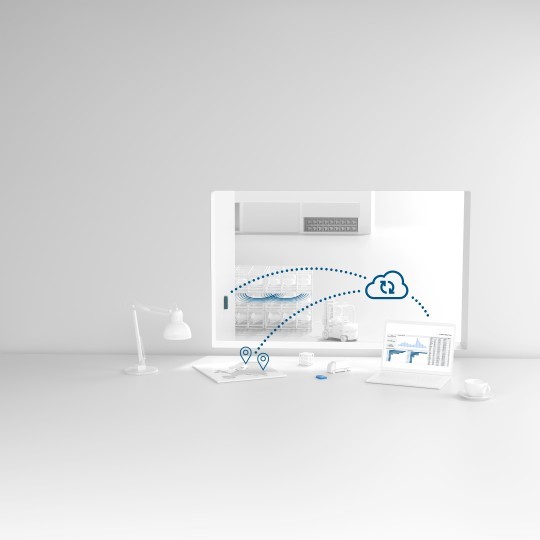IoT Tracking Solution for Load Carriers
9th November 2023

Container management plays an important role in the logistics of manufacturing companies. However, this aspect usually only comes into play when load carriers go missing, transport times increase, or new purchases have to be made at great expense. “Particularly in the case of expensive special load carriers, which are frequently used in the automotive industry, non-transparent delivery chains are an avoidable nuisance. There is huge savings potential, after all,” states Stefan Schenk, who is responsible for the off-road business sector at Robert Bosch GmbH. That is why Bosch developed ‘Track and Trace’. This smart complete solution ensures full transparency throughout the load carrier cycle – across different plants and national borders and with effective integration of various suppliers, logistics service providers, and empties locations.
Transparency across the entire load carrier cycle
Where are there (special) load carriers in the logistics cycle? Are they being used to optimum effect? How can their use be optimized? These are just some of the questions faced by logistics experts the world over. All too often, inventories of (special) load carriers across multiple sites are still performed manually – an elaborate and highly error-prone process. “Employees spend too much time looking for containers that have been recorded either incorrectly or not at all,” explains Schenk. “To maintain an uninterrupted supply to production, additional load carriers have to be purchased while others remain unused.”
Help is now at hand, however, in the form of the smart logistics solution Track and Trace from Bosch. The smart tracking solution provides complete transparency regarding the usage and whereabouts of individual load carriers across all processes. To enable real-time tracking, the containers are equipped with sensors. Gateways located at the main hubs within the plants and at the supplier sites collect the sensor data and enrich it with position data before transferring it to the application in the cloud. Thanks to the software’s web interface, the received data can be clearly displayed in the form of dashboards. This provides all user groups with permanent access to the position as well as transport, throughput, and standstill times of the loading units.
“We want Track and Trace to be simple and intuitive to use,” states Schenk. “Logistics is not about millimetre-accurate localization. Instead, the focus must be on cost-efficient implementation and scalability of the solution for later rollouts.” As well as classic asset tracking, Track and Trace also enables tracking of materials or goods. This allows movements to be tracked via our IoT devices in real-time, thereby ensuring the necessary availabilities. Data regarding product-related information – such as temperature, humidity, and shocks – can also be displayed with the tracking solution.

